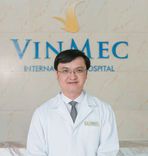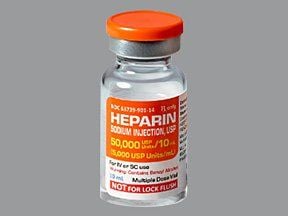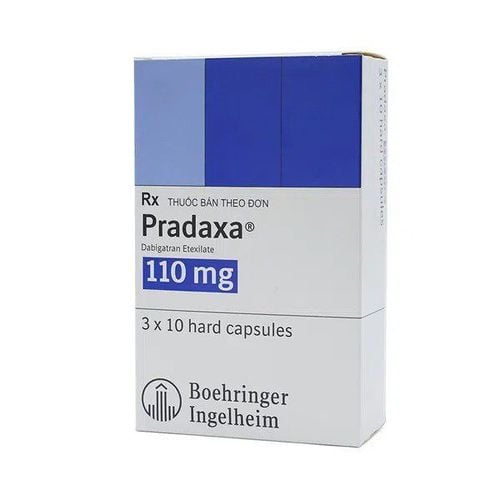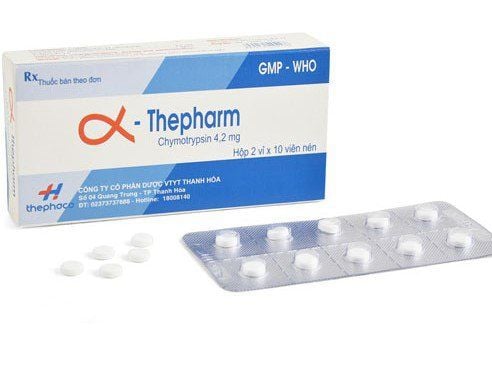This is an automatically translated article.
The article is professionally consulted by Master, Doctor Ta Quang Hung - Department of General Surgery - Vinmec International General Hospital Da Nang. The doctor has more than 10 years of experience in teaching and practicing in the field of Anesthesia.Orthopedic surgery is a type of surgery that can cause dangerous complications such as venous thromboembolism, pulmonary embolism, which can easily lead to death. To prevent this dangerous complication, the patient should be treated with anticoagulant prophylaxis and treatment for deep vein thrombosis. At present, with the advent of many new generation anticoagulants, the selection of suitable anticoagulants needs to be considered in many aspects.
1. Commonly used anticoagulants
There are 3 main groups of anticoagulants used clinically with different nature and mechanism of action: Heparin, vitamin K antagonist and antiplatelet agent.1.1 Heparin Includes regular heparin and low molecular weight heparin
Route of administration: Mainly subcutaneous injection, intravenous injection because heparin is not absorbed orally and is broken down in the gastrointestinal tract Mechanism of action: Anticoagulant rapid blood flow both inside and outside the body depending on the molecular weight of heparin Indications: Heparin is used for the prevention and treatment of thrombotic diseases, prevention of deep vein thrombosis, treatment of thromboembolism due to blood clots. block, prevent blood clot formation in hemodialysis, combined in the treatment of acute coronary syndromes Currently, low molecular weight heparin is gradually replacing conventional heparin due to its advantages such as having diverse routes of administration. longer half-life, less dosing can be used and the selective effect on factor Xa is more stable, side effects are also less common 1.2 Vitamin K antagonists A synthetic anticoagulant, leading to Production of coumarin and indandion
Route of administration: The drug is taken orally, rapidly absorbed from the gastrointestinal tract, but has a long-lasting effect. Slow action, only acting after 48-120 hours Mechanism of action: Because the drug has a structure similar to vitamin K, it interferes with the reduction of vitamin K-epoxid into vitamin K in liver cells, which is an essential substance for the synthesis of vitamin K. coagulation factors. Vitamin K antagonists are used as a follow-up to heparin when long-term anticoagulation is required 1.3 Antiplatelet agents Route: These drugs are taken orally Mechanism of action: Prevents node formation Platelet blocking should have an anticoagulant effect from the primary hemostasis phase Typical antiplatelet agents currently include: Aspirin, Clopidogrel, Ticlopidine, Dipyridamol and Trifusal Antiplatelet agents are indicated to long-term prevention of arterial thrombotic events and a reduction in the incidence of bleeding adverse events.

2. Selection of anticoagulation in orthopedic surgery
Orthopedic surgery is very diverse depending on the location of the lesion on the body. Therefore, the choice of anticoagulation in orthopedic surgery is also different. The anticoagulants of choice in orthopedic surgery are respectively as follows:2.1 Prepared total hip replacement surgery Use of low molecular weight heparin 12 hours before surgery and/or 12-24 hours after surgery. or 4-6 hours after surgery with half the initial dose, the next day take the full dose
An alternative medicine for Heparin is Fondaparinux 2.5 mg/day 6-8 hours after surgery or warfarin before or after surgery.
Prophylaxis can be extended up to 28-35 days after surgery in patients with hip replacement surgery or femoral neck fracture
2.2 Total knee replacement surgery Using low molecular weight Heparin 12-24 hours preoperatively or fondaparinux 2.5 mg starting 6-8 hours postoperatively or warfarin titrated pre- and post-operatively with an INR of 2-3.
An IPCD (intermittent foot pump) can be used with anticoagulants during surgery or immediately after surgery and continued when the patient is walking. However IPCD is only an adjunct treatment because in some cases short hospital stay or uncooperative patient cannot be continued
Some studies show that low molecular weight Heparin More effective than warfarin in preventing deep vein thrombosis but not yet consensus
2.3 Hip fracture surgery Low-molecular-weight heparin or fondaparinux or warfarin titrated immediately postoperatively with target INR 2 ,5 if bleeding is controlled
If surgery is delayed, on admission, treatment with low-dose unfractionated heparin or low-molecular-weight heparin should be initiated and discontinued preoperatively. Fast acting and potentially neutral, and short half-lives make these drugs ideal for prophylaxis during the transition between hospital stay and surgery
Fondaparinux is recommended grade 1A for routine prevention for patients undergoing hip fracture surgery, while low-molecular-weight heparin is grade 1C and low-dose unfractionated heparin is grade 1B and titrated vitamin K antagonists are grade 2B.
2.4 Arthroscopic knee surgery
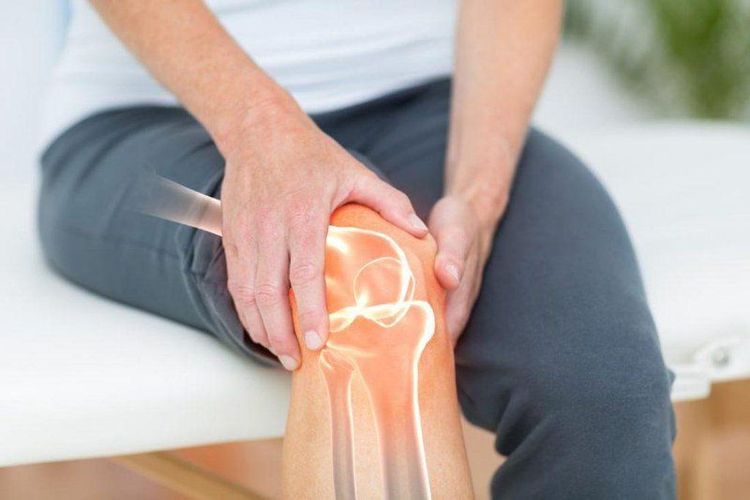
2.5 Prepared spine surgery Antithrombotic prophylaxis should not be given after prepared spine surgery. However, patients at high risk of developing VTE after surgery can be treated with low-dose unfractionated heparin, low-molecular-weight heparin, or preoperative IPCD.
Vinmec International General Hospital with a system of modern facilities, medical equipment and a team of experts and doctors with many years of experience in medical examination and treatment, patients can rest assured to visit. Examination and treatment of orthopedic surgery at the Hospital.
Please dial HOTLINE for more information or register for an appointment HERE. Download MyVinmec app to make appointments faster and to manage your bookings easily.
